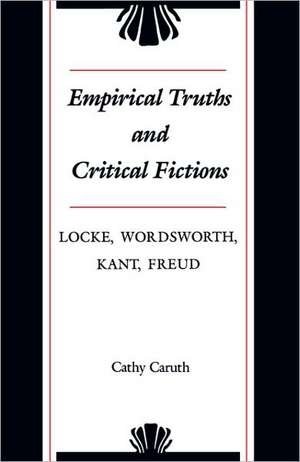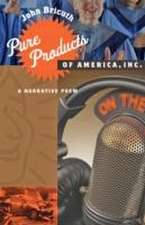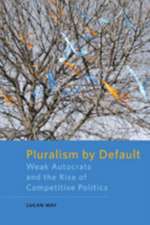Empirical Truths and Critical Fictions – Locke, Wordsworth, Kant, Freud
Autor C Caruthen Limba Engleză Paperback – 22 oct 2009
Beginning her inquiry with the moment of empirical self-reflection in Locke's Essay Concerning Human Understanding--when a mad mother mourns her dead child--Caruth asks what it means that empiricism represents itself as an act of mourning and explores why scenes of mourning reappear in later texts such as Wordsworth's Prelude, Kant's Metaphysical Foundations of Natural Science and Prolegomena to Any Future Metaphysics, and Freud's Civilization. From these readings Caruth traces a recurring narrative of radical loss and the continual displacement of the object or the agent of loss. In Locke it is the mother who mourns her dead child, while in Wordsworth it is the child who mourns the dead mother. In Kant the father murders the son, while in Freud the sons murder the father.
As she traces this pattern, Caruth shows that the conceptual claims of each text to move beyond empiricism are implicit claims to move beyond reference. Yet the narrative of death in each text, she argues, leaves a referential residue that cannot be reclaimed by empirical or conceptual logic. Caruth thus reveals, in each of these authors, a tension between the abstraction of a conceptual language freed from reference and the compelling referential resistance of particular stories to abstraction.
Preț: 220.87 lei
Nou
Puncte Express: 331
Preț estimativ în valută:
42.27€ • 43.97$ • 35.43£
42.27€ • 43.97$ • 35.43£
Carte tipărită la comandă
Livrare economică 13-27 martie
Preluare comenzi: 021 569.72.76
Specificații
ISBN-13: 9780801892691
ISBN-10: 0801892694
Pagini: 184
Dimensiuni: 138 x 215 x 14 mm
Greutate: 0.25 kg
Editura: Johns Hopkins University Press
Locul publicării:Baltimore, United States
ISBN-10: 0801892694
Pagini: 184
Dimensiuni: 138 x 215 x 14 mm
Greutate: 0.25 kg
Editura: Johns Hopkins University Press
Locul publicării:Baltimore, United States
Notă biografică
Cathy Caruth is the Winship Distinguished Research Professor of Comparative Literature and English at Emory University. Her books include Trauma: Explorations in Memory and Unclaimed Experience: Trauma, Narrative and History, both published by Johns Hopkins.



